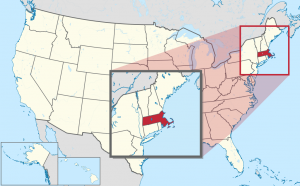 Many people assume that, because Massachusetts is located in the northern part of the United States, solar energy is ineffective. However, solar systems work very well in the state. In fact, despite its diverse climate, Massachusetts was one of the first states in the country to utilize solar energy systems.
Many people assume that, because Massachusetts is located in the northern part of the United States, solar energy is ineffective. However, solar systems work very well in the state. In fact, despite its diverse climate, Massachusetts was one of the first states in the country to utilize solar energy systems.
The following is a brief guide detailing the various types of solar energy, how the energy is used in Massachusetts, and the different incentives and programs available to property owners who install solar panels in Massachusetts on their buildings.
Contents
- 1 Key Takeaways
- 2 Solar Energy Is A Clean Energy Source For Massachusetts
- 3 The Different Types Of Solar Energy
- 4 Is Using Solar Energy Possible In Massachusetts?
- 5 The SMART Program
- 6 Massachusetts Renewable Portfolio Standard
- 7 Case Study: Residential Solar Installation in Massachusetts
- 8 Expert Insights From Our Solar Panel Installers About Solar Panel Laws in Massachusetts
- 9 Experience Solar Excellence with Us!
Key Takeaways
- Despite its northern location and diverse climate, solar energy is effective in Massachusetts, making it a significant part of the state’s clean energy portfolio.
- There are two main types of solar energy: passive solar energy, which utilizes building design to collect and store solar heat, and photovoltaics (PV), which converts solar radiation into electricity for homes and businesses.
- Massachusetts has programs like the SMART Program (Solar Massachusetts Renewable Target Program) and Renewable Portfolio Standard (RPS) to incentivize solar panel installation and promote using renewable energy sources in the state.
Solar Energy Is A Clean Energy Source For Massachusetts
Solar energy is a renewable energy source found in abundance anywhere that receives radiation from the sun. It is a clean energy source and an important part of Massachusetts’s clean energy portfolio.
As mentioned, the weather conditions in the region have not affected solar energy’s popularity in the state. Many energy and environmental experts agree that the state is ideal for utilizing solar resources.
The Different Types Of Solar Energy
The first type of solar energy is known as passive energy. Some buildings can be built so they can collect solar energy, store it, and then distribute it as heat when necessary. These buildings are known as passive solar structures.
They can maximize their absorption of the sun by having south-facing windows installed. Thick and dark-colored materials are installed in the building to create a thermal mass. In simpler terms, the sunlight is stored in the building as solar heat.
Photovoltaics is another type of solar energy, and it is a module that consists of an array of cells. Each cell contains semiconductor material capable of transforming solar radiation into electricity directly used in a home or a business.
This type of system does not pollute the environment, and it can also help customers cut costs on their electricity bills. In Massachusetts, PV systems are very affordable.
Is Using Solar Energy Possible In Massachusetts?
Even with the Commonwealth of Massachusetts’ yearly average of isolation, enough solar energy still reaches the state to produce sufficient energy for PV systems. Also, solar panels and modules typically work more efficiently when the weather is cooler. They are also not affected by snow or ice.
The solar panels are installed at angles in Massachusetts. This is necessary because it prevents snow from blocking the sunlight while ensuring the panels absorb the radiation from the sun.
With that said, what are the state’s laws regarding solar panels?
The SMART Program
The state has a solar energy program in place known as SMART. This stands for ‘Solar Massachusetts Renewable Target Program.’ The DOER (Department of Energy Resources) regulation of 225 CMR 20.00 serves as the foundation for the regulatory framework for the solar energy program.
The program is based on tariff incentives, which are paid out by the utilities directly to the system’s owner. However, each incentive application must be brought before the Solar Program Administrator before they are approved.
The program is a 1600MW reduced block incentive solar program. For solar projects to be approved for the program, they must be connected with one of the privately owned utility companies in the state. These companies are:
- National Grid
- Eversource
- Until
All of these utility companies have blocks that are established. These blocks have declining incentive rates.
As of 2018, to qualify for the SMART program, an applicant had to meet the following qualifications:
- Facilities that use up to 25 kW AC must be reviewed. They are then placed in Capacity Blocks by the order in which their contract was accepted and executed.
- Facilities that use more than 25 kW AC will be reviewed. The order in which they are placed in Capacity Blocks depends on when the Interconnection Services Agreement was approved and executed.

Massachusetts Renewable Portfolio Standard
The state averages a B on its RPS. The renewable portfolio standard is a law mandated by the state legislature. It states that a certain percentage of the total energy generation for an area from a renewable source is completed by a specific date.
The utilities in the state have to meet these standards by generating renewable energy on their own or purchasing energy from customers when they use solar panels.
The RPS currently in Massachusetts is a two-tiered plan that establishes standards for Class I and II energy production. Class I is a new solar energy resource, and Class II is an existing resource.
Massachusetts is known for much more than the Red Sox, outstanding universities, and pilgrims. It is also a pioneer in the solar energy sector. As the state continues to make incentives and rewards more attractive for residents, more residents will use solar panels to generate renewable, clean solar energy.
Case Study: Residential Solar Installation in Massachusetts
Background
At Solar Panels Network USA, we specialize in providing customized solar energy solutions that cater to the unique needs of our clients. Recently, we completed a residential solar installation project in Cambridge, Massachusetts. The homeowners were keen to reduce their carbon footprint and leverage the state’s generous solar incentives.
Project Overview
The primary goal of this project was to install a solar panel system that would significantly cut down on electricity bills and contribute to the homeowners’ sustainability goals. Massachusetts’ favorable laws and incentives, such as the SMART Program and Renewable Portfolio Standard (RPS), played a pivotal role in shaping the project’s framework.
Implementation
We began with a detailed assessment of the property, evaluating the roof’s orientation, shading, and available space. Given the local climate and the average energy consumption patterns, we designed a system comprising 24 high-efficiency photovoltaic (PV) panels.
The installation process was straightforward, thanks to Massachusetts’ streamlined permitting process for solar projects. We coordinated with Eversource, one of the utility companies participating in the SMART program, to ensure that the system would qualify for the available incentives.
The PV panels were installed at optimal angles to maximize sunlight exposure while ensuring that they were positioned to shed snow efficiently during the winter months. The system also included a robust inverter and battery storage solution to enhance energy independence and reliability.
Results
The installed solar panel system now generates approximately 80% of the household’s annual electricity needs. The homeowners benefit from reduced utility bills and receive additional income from the SMART incentives for the surplus energy fed back into the grid.
The integration of the battery storage system has provided the homeowners with a reliable backup power source, ensuring energy availability during grid outages. This setup not only boosts their energy independence but also contributes to a more resilient energy infrastructure in their neighborhood.
Summary
Our project in Cambridge, Massachusetts, highlights the practical and financial benefits of leveraging state incentives for solar energy. By utilizing programs like SMART and adhering to the Renewable Portfolio Standard, we provided the homeowners with a sustainable and economically advantageous energy solution. At Solar Panels Network USA, we continue to deliver top-quality solar installations that align with the latest state laws and promote the widespread adoption of renewable energy.
Expert Insights From Our Solar Panel Installers About Solar Panel Laws in Massachusetts
As a seasoned installer, I can attest to the effectiveness of solar energy systems in Massachusetts. The state’s incentives, like the SMART program, make solar installations not only viable but also financially beneficial for homeowners.
Senior Solar Installer
The Renewable Portfolio Standard in Massachusetts has set a robust framework for renewable energy adoption. This policy ensures that a significant portion of the state’s energy comes from renewable sources, benefiting both the environment and residents.
Lead Installation Technician
Massachusetts’ commitment to solar energy through various programs and incentives makes it an ideal place for solar installations. The regulations are designed to maximize efficiency and encourage widespread adoption of solar technologies.
Solar Energy Consultant
Experience Solar Excellence with Us!
Trust in Solar Panels Network USA, where our seasoned experts deliver top-quality solar solutions for homes and businesses nationwide. With a legacy of countless successful installations and a commitment to sustainable energy, we’re your reliable partner in the solar journey. Ready for a brighter, eco-friendly future? Call us now at (855) 427-0058 and harness the power of the sun!
Map image by Wikimedia Commons User: TUBS / CC-BY-SA-3.0
About the Author
Solar Panels Network USA stands at the forefront of solar energy solutions, driven by a team of seasoned solar engineers and energy consultants. With over decades of experience in delivering high-quality solar installations and maintenance, we are committed to promoting sustainable energy through customer-centric, tailored solutions. Our articles reflect this commitment, crafted collaboratively by experts to provide accurate, up-to-date insights into solar technology, ensuring our readers are well-informed and empowered in their solar energy decisions.


